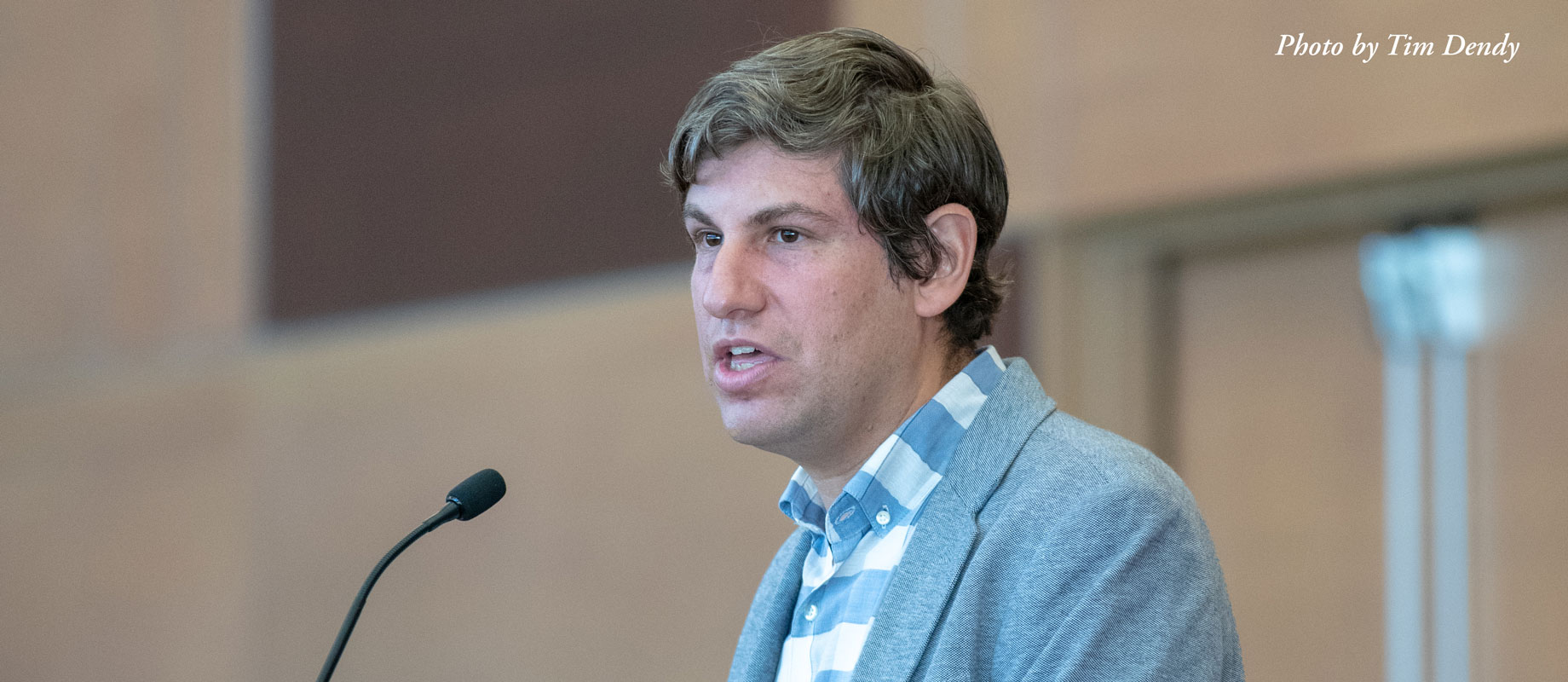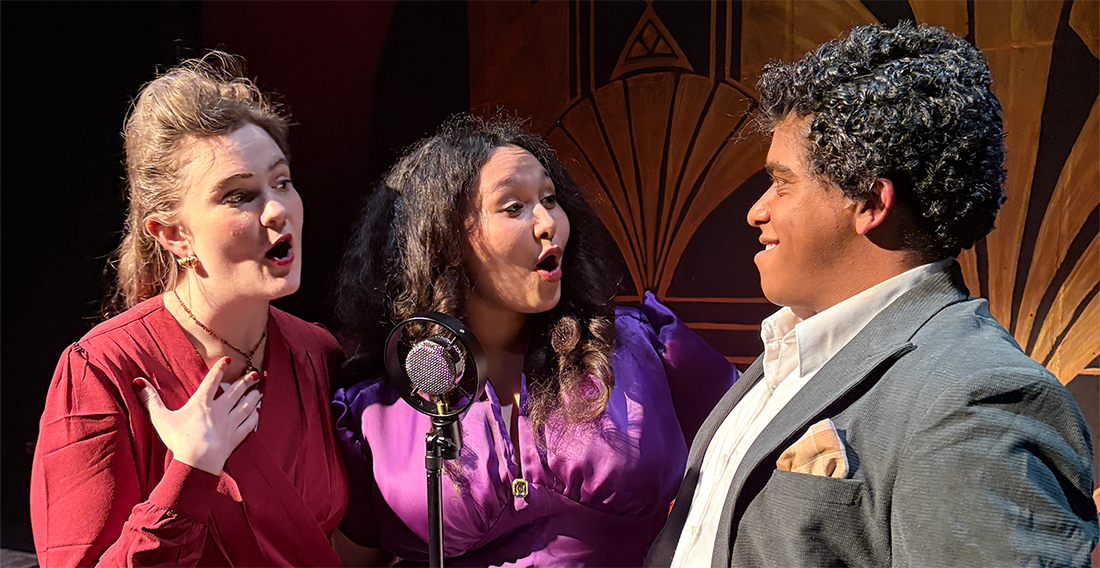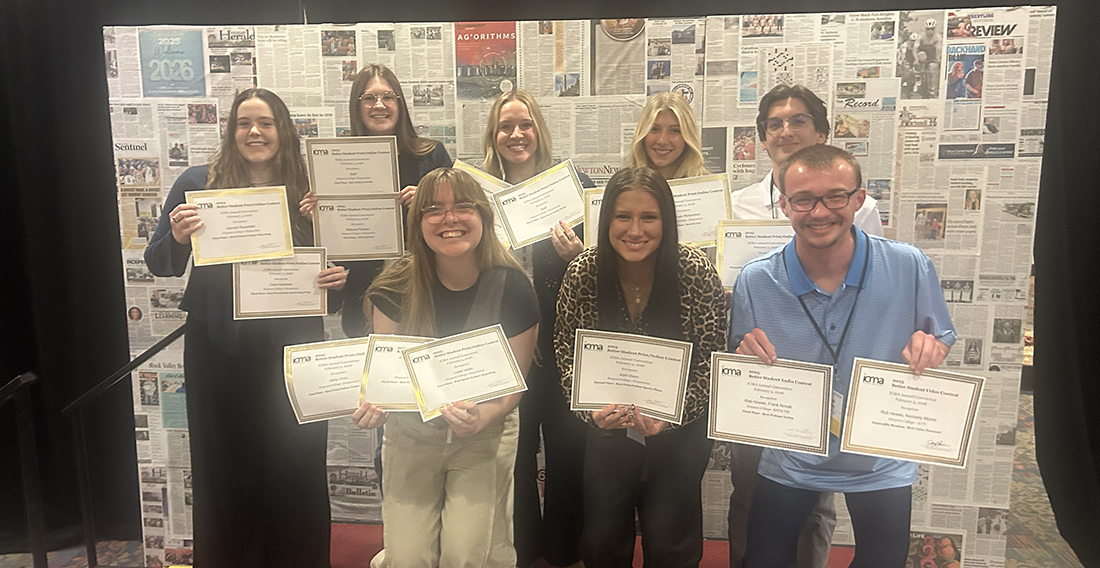Ari Berman Focuses on Voting Rights During Annual McBride Lecture

Why do Simpson students vote in three different precincts?
Why did Iowa enact a new Voter ID law?
Why is the state one of only four that does not grant ex-felons the right to vote?
Journalist Ari Berman says those actions, like those taken in other states, “are a pretext for the real agenda, which is to make it more difficult for certain people to vote.”
A native of Fairfield, Berman delivered the 31st Annual McBride Lecture Oct. 9 in Hubbell Hall. He is a senior reporter at Mother Jones magazine, a former senior contributing writer for The Nation and the author of, “Give Us the Ballot: The Modern Struggle for Voting Rights in America.”
Berman traced the history of voting rights since passage of the landmark Voting Rights Act of 1965, which outlawed discriminatory practices, mostly against African-Americans.
“It was the law that made America a functional democracy for the first time,” he said.
And it was met with fierce opposition, which almost always occurs when more people are allowed to vote.
For example, the 15th Amendment to the Constitution, which was ratified in 1870, gave African-American men the right to vote. It was followed in the South by Jim Crow laws making it almost impossible for those men to exercise the franchise.
In Selma, Ala., Berman said, only 2 percent of African-Americans were eligible to vote. The number registered in Mississippi was 6.7 percent.
“America is the only advanced democracy that has given people the right to vote and then taken it away,” he said.
It was Berman’s desire to start a high school newspaper in his hometown that led to his mutual interest in journalism and politics. (He was accompanied to the lecture by his mother, Harriet, who still lives in Fairfield.)
He attended a week-long journalism camp at the University of Iowa and won an award for best newspaper design, “which is hilarious because I had never designed a newspaper before.”
His interest in journalism took him to Northwestern University, where three events “made me more aware of the political process and what was happening in the world:”
The 2000 election and the 36-day recount, the terrorist attack on Sept. 11, 2001, and the subsequent U.S. war on Iraq.
The war “led me to question the decisions of those in power and made me look to journalism as an avenue to try and do something about that.”
He became increasingly interested in voting rights. Berman told the students assembled for the McBride Lecture that he doesn’t care who a person votes for, but does care that people vote and are not discouraged from doing so.
In 2008, when Barack Obama was elected, more than five million new voters cast a ballot, many of them representing minority populations. They voted 75 percent for Obama.
“I think people on the other side of the equation saw that as a wake-up call,” he said.
They could have changed policies to attract new voters.
Instead, “they reached back to a very old strategy,” Berman said. “You try to make it harder for those people who disagree with you to participate in the political process in the first place, and that unfortunately is what we have seen in recent years.”
The 2010 election saw many states, including Iowa, flip from blue to red, and that triggered a wave of voting law changes, including requiring voter IDs, restricting early voting, purging voter registration rolls and making it more difficult to register.
“We saw these efforts all across the country, including in Iowa, and many of these efforts specifically targeted college students,” he said.
Many of the changes are justified by what Berman described as “a totally bogus rationale, which is the threat of widespread voter fraud.”
Since 2000, there have been 31 cases of voter fraud nationwide out of a billion cast. Given the penalties to fraudulently add one more vote, “that seems to me like a really stupid way to try to steal an election.”
According to the ACLU of Iowa, 150,000 people in the state do not have an Iowa driver’s license or state ID and would not be allowed to vote. Meanwhile, one person was charged with trying to vote twice in the 2016 election.
“One case doesn’t justify 125,000 possible cases of disenfranchisement,” he said.
Berman urged the college students to support local candidates who want to expand voting rights. Most of all, if young people want politicians to address the issues they care about most, they must vote.
“The reason they don’t address these issues is because young people don’t vote in the same way that older people do.”
But how can one vote make a difference?
“The fact that people are trying to prevent you from voting shows that there’s a recognition your vote has power,” Berman sad.
The McBride Lecture was established in 1987 by the Simpson Board of Trustees to honor Robert and Luella McBride. He was president of Simpson from 1979-87.
Article Information
Published
September 28, 2018
Author
Office of Marketing and Strategic Communication



